Top 8 Ways Journaling Can Change Your Life
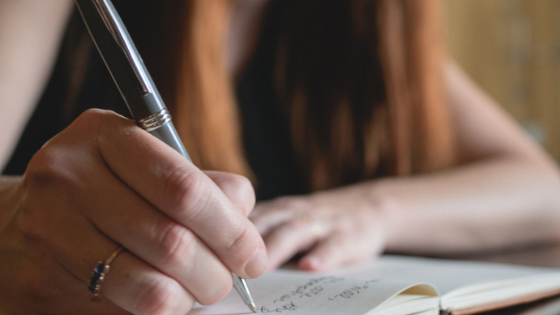
Some of the links in my blogs may be affiliate links. See my disclaimer page for more information.
Whether you’re dealing with anxiety and depression, or simply going through a rough
patch in life, journaling can serve as a free and entirely self-managed form of therapy
that’s actually quite effective. In fact, keeping a journal can be beneficial even when
you’ve managed to reach and sustain a state of emotional balance and mental peace.
There are at least 8 significant ways in which journaling can change your life. Check out some of my favorite journals here on my Amazon page.
#1 Living Your Life Mindfully
Far too often, people move from day to day without ever stopping to smell the proverbial
roses. Not only are they failing to feel and express gratitude for the many wonderful
things that are happening in their lives, but they’re also overlooking a number of
tremendous, learning opportunities. Writing in a journal forces you to stop and reflect on
seemingly minor events that might otherwise go overlooked.
This practice isn’t just about noticing the positive things in life either. During the process
of writing about your day and your interactions with others, you may notice a number of different things.
You may notice negative patterns repeating themselves in your thoughts and deeds. The problems in your personal relationships. There may be personal needs that you haven’t been paying attention to. And alternative ways of responding to both internal and external stress that you haven’t been using. Most importantly though journaling provides you a way of being present more in your everyday life.
Make Note of Your Feelings
Your feelings are not always easily understandable. Perhaps you think you know how
you feel but your mind is confused about it, and you’re not sure how you really feel.
Write it down. Your jumbled thoughts might not make sense in your mind, but it might
make more sense when you see it on paper. The purpose here is to read your journal
and find common ground in your feelings and your thoughts. You’ll begin to notice
patterns.
Looking at the Patterns
Patterns are so important in journaling. When you notice patterns relating to your habits,
you become more aware of yourself. It helps you make better decisions, and it helps
you change your habits for the better. Patterns and trends in your thoughts are key,
even if you’re not sure what they are when you’re working on them.
One thing you should know about keeping a journal is yours is different than anyone
else’s. You’re not going to find your journal works for you the same way as someone
else. And that’s all right.
#2 Establish a Positive Mindset
When you keep a journal, you have the power to fill it with any type of material that you
choose. Spending time to reflect on the small blessings in life, however, can
automatically move you from a negative and self-defeating mindset into a more positive
and proactive one.
You might be swimming in debt, struggling with your personal relationships, or barely hanging on at your job. But you also have the ability to walk, run and jump, which is something that some people don’t get to do.
You have another day to affect change in your life, strong mental abilities, the power of
self-forgiveness, and more. Take the time to list out things that establish you as
stronger, smarter, and more enduring than the problems that you’re facing at the
present moment. This will give you the strength, and the right attitude to keep pushing
forward.
My Positive Journaling Routine
In my journal every morning I start out with the 3 things I am most grateful for. I even go as far as not listing the same 3 things in a 7 day period. I actually try to see how long of a streak I can do without repeating anything. Yes, I’m always grateful for waking up and being with my family. But it will mean more if I can dig a little deeper to come up with other things I am grateful for. This helps to start my day off on the positive.
Before I go to bed at night I write 3 wins for the day in my journal. Sometimes my day has really been crappy and it is hard to come up with this. On days like these, I just think of something that could have happened and didn’t. I got dinner on the table, 5 minutes alone time in the bathroom, and I didn’t go off on my kids were my wins on these days.
#3 Start Forming New Goals or Habits
Goal Exploring
Journals are also great tools for overall life planning. Have you ever wondered how some
people seem to have their whole lives figured out? They may be keeping journals. The best part about using a journal to establish and pursue life goals is the fact that this process can be an entirely informal one.
Journaling is merely a platform for bouncing ideas around and helping them take shape.
Once you’re ready to make an actual commitment to a new life effort, you can always
take notes from your journal and use them to draft a more formal plan.
Habits
Good habits, bad habits, weird habits; everyone has habits. They’re not always good,
they’re not always bad, and they’re not always weird. But most people have a very
diverse way of living life with their habits in mind. The problem with habits is that they’re
complex. They’re difficult to break when they’re bad, and they’re difficult to create when
they’re not. Everyone is looking for a way to eliminate their bad habits, and others are
looking to introduce good habits into their lives. Believe it or not, journaling can help you
track your habits, so you can change them.
When it comes to picking up good habits and breaking bad ones, this is where you should pay close attention. Let’s say you bite your nails. It’s a bad habit. It’s dirty, it’s germ-filled,
and it’s unsanitary. However, you do it anyway. You know you want to stop, so you try to stop. Yet you find yourself absentmindedly biting your nails sometimes.
Why?
When you write down your feelings when you’re biting your nails, you’re making
yourself more aware of what you’re doing and why you’re doing it. Perhaps you bite
your nails when you focus too hard on something or when you feel stressed. When you
practice being mindful using your journal, you might find it is easier to change that habit
by also being mindful in the moment.
Track Your Progress
Your journal is for your feelings, but it might also be for tracking your progress. Perhaps
you can create a list of your goals and the good habits you’d like to create. Is one of
them to make better decisions to be happier every day? Write it down. When you write it
down, you see it as a goal in progress. You can create a list of habits to work on each day to help you achieve those bigger goals.
For example, if you are working on being happier and making the conscious decision to
be happy each day, make a habit to write down three things you’re happy about or
grateful for each day in your journal. You can review all the things you’re happy about and grateful for each day or week, and you can use that to help you create better habits.
Changing your habits is not easy, but it can be done. It’s made simpler when you work on your habits through journaling.
#4 Journaling for Weight Loss
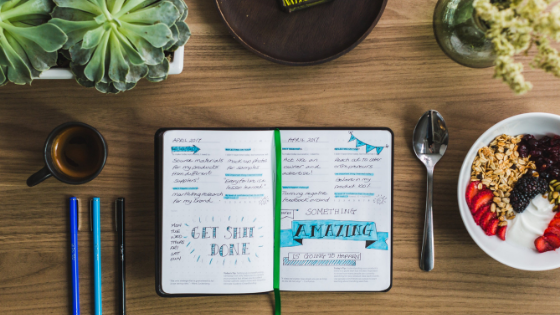
Speaking of habits…You can also use journaling to help you lose weight, and it’s much easier than you might imagine. Think of a list of habits that will help you to lose weight and journal your progress. There are also a number of things you can track in your journal for weight loss.
Write Down Everything You Eat
A food diary is how you know what you are eating, how much, and when. This is how
you know where your problems are, how you can change your diet, and what’s keeping
you from your goal weight. Write down all you eat for every meal, what you eat between meals and everything you put into your mouth during the day.
It isn’t necessary to write down the calories and calculate them all up (unless that is something you enjoy doing). I have my clients in the Sisterhood of the Shrinking Pants just snap pictures of their food and write it down all at once. You are always carrying your phone anyway, right?
Don’t forget to write down your snacks and the beverages you consume too. Did you grab a piece of chocolate from the candy dish at work? Write it down. When you see all you consumed in the form of a list at the end of the day each day; you’re going to see where your problems are located.
Write Down Your Movement
You might not realize just how inactive you are each day. Many people work sedentary
jobs in which they don’t get up much throughout the day. When you take the time to
write down how much you get up and walk around or how much time you spend working out you can see how active or inactive you are. It might be what you need to see that you’re not getting as much movement as you thought each day. This can help you change your habits and become increasingly active.
If you really like to track your steps or minutes of activity consider getting a fitness tracker. Check out my favorite fitness tracker I’ve used for the last 5 years in my blog review: Garmin Vivofit Fitness Tracker Review
Write Down How You Feel
One way to really use your food journal to help you lose weight is to write down how you
feel each day. Write down how you felt throughout the day. Were in you a great mood in
the morning, sluggish in the afternoon, and downright upset at night? You might have a
bad day at work, but you might also notice that your moods coincide with how you eat
throughout the day.
For example, perhaps you’ll notice that the days you feel most tired and upset are the
days you ate poorly or skipped breakfast. The point here is to keep a journal of what
you eat in the form of a list combined with a notation of how you feel throughout
the day. You gather evidence, put together the pieces, and you begin to see similarities
in certain foods and moods.
If you do find yourself eating when you are upset more often than expected read my blog What are the Signs of Emotional Eating? for some tips and grab my Free Guide How to Train Your Brain to Hate Junk Food for tons of extra tips and resources.
Read Your Journal
Here is where you might lose out on the best part of journaling. You can’t learn from your food journal if you’re not reading it. You don’t need to read it every day. But you should spend some time reviewing your entries at the end of the week. Make notes about things you noticed.
Perhaps you had fast food twice this week and both times you felt sluggish and upset. Maybe you had healthy dinners a few times this week and woke up feeling good and energized the following day. Make notes of things you notice like this.
You will begin to notice things you are experiencing. This is where you begin to make
changes. If you skip fast food all week, can you avoid being sluggish? You can make a
note to try doing this during the upcoming week and see if it makes a difference. This is
how you begin to make positive changes and focus on your life as it is.
Your journal can be used for so many things. There’s nothing you can’t write about, but
keeping a food journal is something you might consider if you’re not already. It’s a
helpful tool in the weight loss process, and it helps you get to know yourself a little
better. Sometimes you can’t see the things that are holding you back because you don’t
realize they’re happening. Seeing them listed on paper might just change your life.

#5 Enhance Your Creative Potential
The act of journaling can be an incredibly creative process as well. After all, you’re not
just writing about the things that have happened or are happening in your life. You’re
also writing about the way in which you want things to be. This flexes your imagination,
enhances your creative skills, and promotes new and far more interesting ways of
thinking.
For some people, journaling has even given rise to some fairly impressive
works of fiction and fan fiction. If you’re a writer or aspire to be a writer, a journal gives
you sufficient private space for writing without fear of judgment. You can also draw in your journal. Sometimes expressing yourself this way is an outlet for stress that you never thought to try.

#6 Build Better Communication Skills
In the very long list of benefits that regular journaling can provide, better communication
is hardly the least. The practice of writing about your thoughts and feelings will make
you more adept in issuing thoughtful responses. It will also improve your emotional
intelligence. This will help you to respond to the wants and needs of
others in an empathetic way.
Sometimes when something happens to us we react in a way that we regret later. You can use your journal to hash it all out and prepare yourself for when you need to have that discussion.
#7 Journal for Self-discovery & Memories to Capture
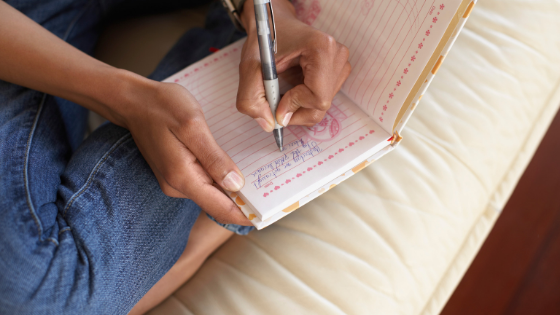
Tell Your Life Story through Journaling
In the later years of your life, will you remember all of your adventures? Will you vividly
recall the emotions that you felt during some of the best times as well as some of the
worst times? Heck I can barely remember what I went to the kitchen for five minutes ago, lol!
Will your family be able to learn about who you truly were as a person after you are gone? Will they understand your side of the story or your driving motivations? Each life is filled with incredibly rich and poignant twists and turns. Even on average days of your life, your unique thoughts and daily activities can be rich with meaning and importance in subtle or grand ways.
Journaling is an excellent way to tell your life story for your own benefit or to share with others at a much later date. I know I would have loved to have read a journal by my grandmother.
Get to Know Yourself
Through journaling, you must take a close, introspective look at who you are and what
you stand for. Many people simply assume that they know who they are a person
because they live in their own skin. But as soon as you sit down to put pen to paper, you
may realize that there are at least a few parts of yourself that are a mystery.
With each new journal entry that you write, you may discover a little more about yourself that you previously didn’t know. Your life story that unfolds on each new page in your journal may fascinate you in different ways.
Examine Your Highs and Lows
Many people who journal on a regular basis will not have major dramatic events to
examine more closely. But no life is without its highs and lows. Journaling gives you a
chance to capture the day-to-day experiences and feelings related to routine days as well as major life events.
You don’t want to forget details about day-to-day life that may actually be relevant and interesting in various ways. When you read back through the journal at a later date, you can recall in clear detail what your life was like at a certain point.
#8 Journaling for Household Management
Journaling is also a great way to learn more about yourself in a more general way. It is an excellent resource to use to manage your busy household more efficiently.
Clear Your Mind
When you are stressed out about how much work you have to do around the house or
how you will manage to get all of your kids to their different activities after school, you
may feel overwhelmed and anxious. This mindset creates a mental challenge, and it
makes it difficult for you to concentrate and to enjoy the small joys in your daily life. It
can even lead to burnout.
Journaling gives you an excellent way to clear your mind and to unwind. After your mind is clear, you may be able to think about ways to better manage your to-do-items. It may also help you to focus on the items that you are currently doing, and this can boost efficiency.
Gain Clarity About Your Daily Activities
If you are like me your busy schedule is always at the front of your mind. You may find that some of your free-flowing journal entries explore the activities and chores from time to time.
When you spend time focusing on how and why you are doing these activities, you may
find a better way to address them. With some items, you may find that they are not
needed or are not convenient.
For example, say your child’s piano lesson is booked at the same time your other child’s soccer practice is scheduled. You may realize that a simple solution is to schedule the piano lesson for a different time that is more convenient.
Determine When Chores Are Not Equally Divided
Journaling may also help you to determine if you are pulling more than your fair share of
the weight. Remember that chores may not be evenly split if one parent has a much more
demanding work schedule than the other. However, this does not mean that you need
to do all of the work.
The other parent should pull some weight, and you may get the kids to pitch in and help in different ways. Journaling may give you clarity about how to allocate weekly chores so that everyone does their fair share.
Understand When You Need Extra Help
Journaling can help you in each of these ways, but there are instances when you and
your family members are simply too busy to handle all aspects associated with running
a busy house. If you have determined that your to-do list is too demanding, you may need to look outside the home.
For example, you could set up a carpool with other busy parents to get your kids to their various activities. You may also determine that you need to hire an assistant at work so that you have more time to spend at home. Perhaps you can work remotely to better manage your busy home life. You may even hire a maid service to
clean your house periodically.
Why Will You Be Journaling?
Journaling can be a richly rewarding experience. It is an excellent way to de-stress and
to sort through difficult emotions. It also is a way to document the story of your life for
yourself and for others. You do not need to be going through some major life event to
journal.
Many people who journal regularly find that they can think through their
problems more clearly, and this includes both smaller or larger problems. Each day has its beautiful moments as well as its stressful moments. These are precious moments, and journaling captures each day in vivid clarity and great detail. Check out some of my favorite journals here on my Amazon page. So why will you be journaling? Share with me in the comments below!
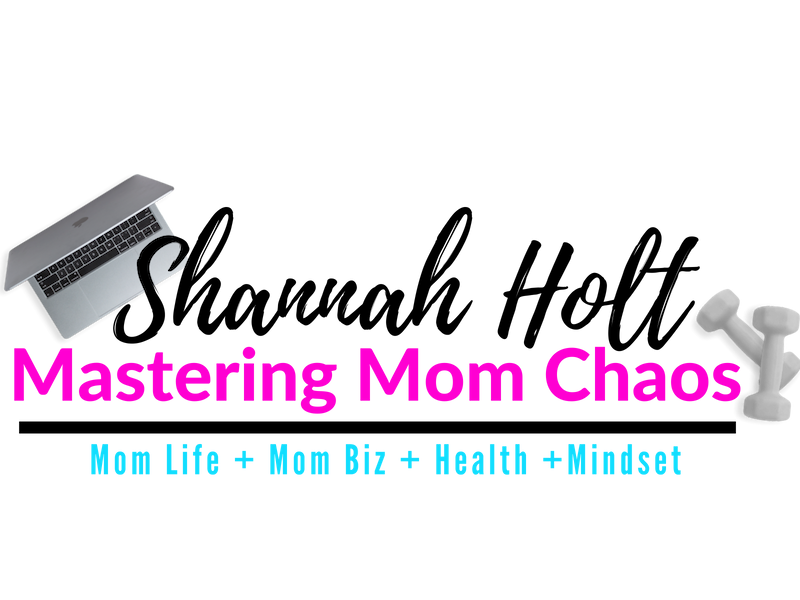

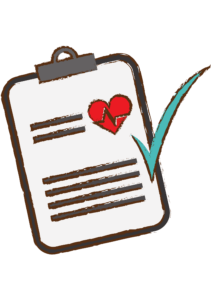




Love this! It’s very clear on the benefits of journaling – you can literally journal every aspect to keep organized. Good stuff!
Great post! I recently started journaling too and its been so helpful!
I journal every day but just very general. I love the idea of journaling for household management and am going to start right now. Thanks for the great info.
Fantastic post! I love the idea of jotting down positive things each morning. Great way to start the day, with a positive mind
Although I live in a pretty digital world, I really enjoy pen and paper. Journaling is so tangible, and a fun way to look back at the past. I hadn’t considered all of the additional benefits, but I am thinking it would be a great fit for me.
I always wanted to keep a journal. In fact, I’ve purchased many journals over the years with full intentions of using them. But it just seems like there’s always something else that needs to get done. I have even tried journaling apps, although I think the physical act of writing is more productive. Maybe I’ll give it another try. If I could just make it into a habit!
Thanks for all the tips. Journaling for me is quite therapeutic and I enjoy doing it. I don’t do it religiously, but its a great way for me to relieve stress. I think it has so many benefits!
I used to journal all the time in high school and college. I haven’t in years – I miss it!
I haven’t kept a journal since high school, but I’ve actually been thinking about starting up again. I did do a food diary for a while and it was really interesting to see the patterns and habits of that. Thanks for the interesting post!
I love to journal. It helps me clear my mind and relax.
Something happens to your brain when you journal. It FORCES you to slow your brain down enough to write. There’s so much distraction with all the social media our brains are constantly being forced to change the channel. I love journaling to make me focus my thoughts. THANK YOU for this post!
Love the tips on why journaling is a good idea! Will definitely try this out!
What a great post! I have never thought about the benefits of keep a journal.. this post has helped me understand how it can really help me in my daily life!
Such great ideas here. I 100% agree I’ve noticed patterns when I journal! I also try to as a mindfulness practice
Journaling is great to get things off your chest and really see what you are thinking. Great article about using journaling in ways other than the usual ones!
Thank you!
I need to get back into food journaling. I only ever lost weight when I was doing it. I need to get my bullet journal back out. I really enjoyed doing it but fell out of the habit. Thanks for the ideas!
You’re welcome! You got this!
This has really helped me understand the benefits of journalling – I’d love to try it sometime.
I’m glad it could help!